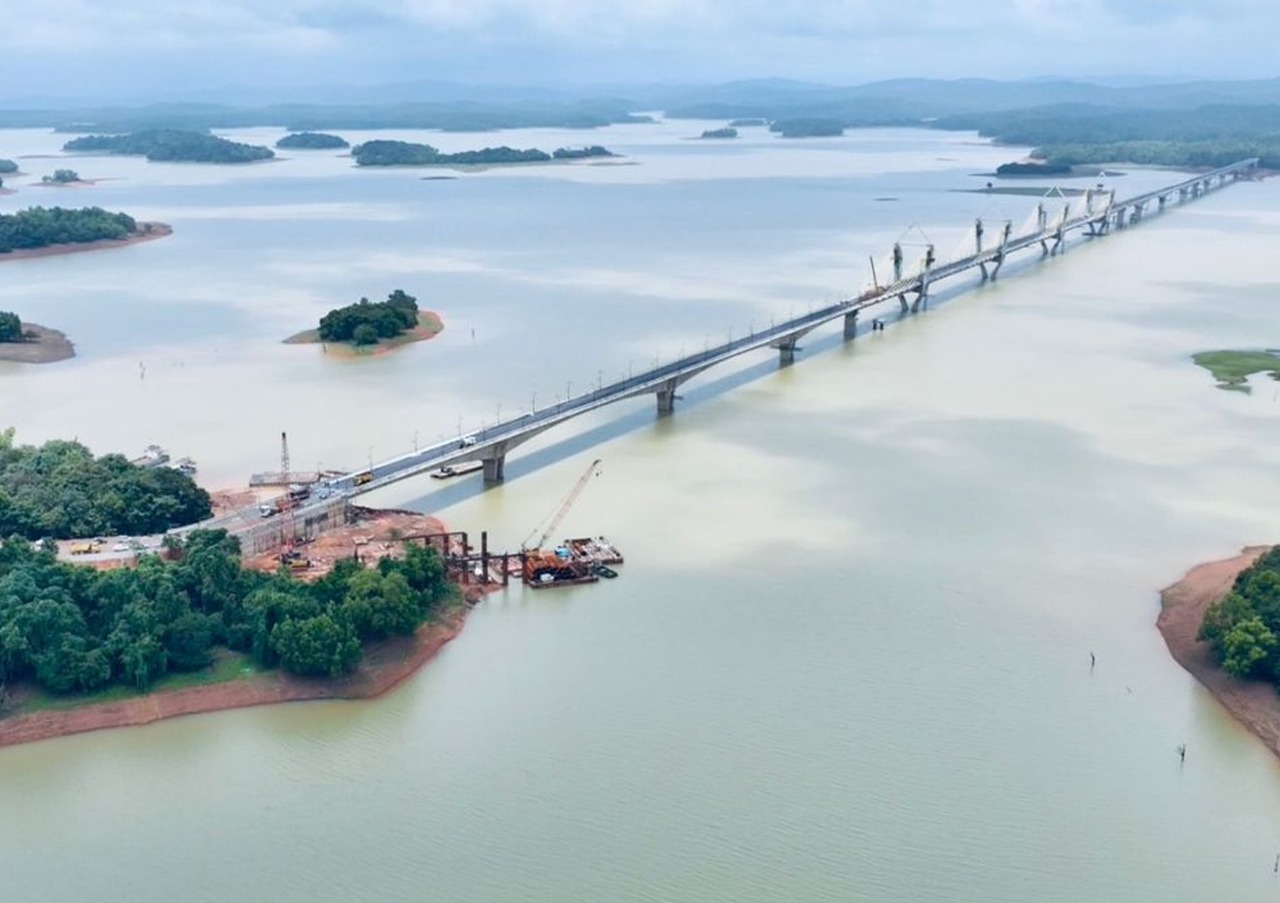
SHIVAMOGGA:
Union Road Transport and Highways Minister Nitin Gadkari inaugurated the Sigandur bridge on Monday, marking the completion of India’s second‑longest cable‑stayed bridge. The landmark structure spans the Sharavathi backwaters between Ambaragodlu and Kalasavalli in Sagara taluk, extending over 2.2–2.44 km and costing around ₹472–₹473 crore.
Designed with an extradosed balanced‑cantilever layout, Karnataka’s first of its kind. The bridge features 740 metres of cable‑supported span over dual‑lane carriageways and dedicated footpaths on either side. Built to ease the arduous river crossing that once relied on ferries since the Linganmakki dam submerged the area in the 1960s, it promises to slash travel time by up to two hours and vastly improve connectivity for Malnad region residents.
Addressing the gathering after unveiling the bridge, Mr Gadkari emphasised its regional significance. He noted that the structure would “significantly enhance connectivity for numerous villages in the Sagar and Hosanagara taluks,” and improve access to pilgrimage destinations such as Sigandur Chowdeshwari and Kollur Mookambika temples . He also highlighted the bridge’s role within larger road projects, including a new four‑lane corridor connecting Belagavi to Raichur, backed by a ₹10,000 crore investment intended to accelerate regional development.
The inauguration drew a high-profile guest list: alongside Union Minister Gadkari were Pralhad Joshi and former Karnataka Chief Minister B. S. Yediyurappa, along with Shivamogga MP B.Y. Raghavendra . No representatives from the state cabinet were present. Chief Minister Siddaramaiah and his colleagues notably skipped the event, citing a lack of timely invitation and requesting a postponement, charges that Mr Gadkari said were unfounded as invitations were dispatched on 11 and 12 July.
Local residents welcomed the bridge as a long‑awaited solution. They had endured dangerous ferry crossings with long waits, which, as repeated accidents demonstrated, posed serious safety hazards. During the inauguration ceremony, a puja was held on the structure as rain drizzled over the crowd of locals, MPs and MLAs who gathered to witness the dedication.
The ₹456.6–₹472 crore project began in March 2019, with construction officially commencing later that year. By June, load testing confirmed structural integrity: a 100‑tonne truck load caused only a 22 mm deflection, well within the 38 mm safety threshold, with full recovery upon load removal.
The new bridge is expected to not only improve daily commutes but also boost tourism in the region by enhancing access to religious and cultural heritage sites. With maintenance contracts in place for the next decade, the structure is set to become a durable symbol of Karnataka’s infrastructural milestone.